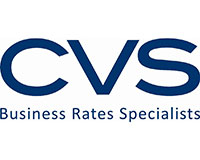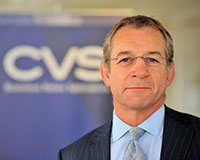 When you start to talk about ratings in the world of real estate there are usually two reactions: a glazing over of the eyes or a quiet, yet very noticeable bubbling up of rage at the government’s inability to sort out the system that calculates them.
When you start to talk about ratings in the world of real estate there are usually two reactions: a glazing over of the eyes or a quiet, yet very noticeable bubbling up of rage at the government’s inability to sort out the system that calculates them.
Or, if you are Mark Rigby, chief executive of business rates – and now rents – specialist CVS, you get very excited.
CVS began life in 1999. It started out as a small, regional general practice surveying firm and trundled along nicely for a decade doing a healthy dose of ratings work, agency work, building surveying etc. But in 2009 and into 2010, when the real estate market was still spluttering out of one of the worst financial crises ever seen, it set out ambitious plans to become the number one ratings firm in the UK. It decided to drop the security of having a number of strings to its bow as a general practice firm and focus solely on one service line.
“We took the view that there were opportunities for growth for a firm that was going to set its stall out first and foremost as a true specialist,” says Rigby. “It wasn’t going to see business rates as a complementary or bolt-on service, it would be set up to ensure that we would bring the best that we could afford from a resources point of view, expertise, technical specialism, etc, and build something that could become a market leader with all the attendant benefits that go for people who work for market leaders.”
And a look at CVS’s growth over the five years since making that decision proves that Rigby has done just that. In 2010, the firm had a workforce of 90 people and a turnover of £8m. Since then, figures from EG’s Top Agents survey show consistent growth in turnover from £11.8m up to £14.6m and then £22.4m last year. Today, Rigby says the firm is made up of more than 300 people and will bank revenues of between £35m and £40m this year.
“We were quite generalist in what we offered, without a real strong point of difference,” says Rigby of the time before CVS chose to specialise. “When anyone is starting out you have got to be really clear as to what is going to be your point of difference. What are you going to do that is going to be better and different to the rest of your competitors.”
CVS’s focus is clear. The business has so far settled around 55,000 appeals from the latest list and, by the time it is all settled, expects to have done at least 70,000, half of which, says Rigby, will have led to reductions in rateable values. And it is this, the obvious flaw with a system that will remain until the government budges from its stance of having any changes to it being “fiscally neutral”, that gives CVS the confidence that there is plenty of growth left in the business.
But it no longer wants to be a one-trick pony, so in April set up a new service line: business rents. Led by John Hayward, the division acts purely for tenants and, like its ratings service, is performance-based. There is no upfront fee, just a percentage of any savings achieved.
So far, CVS has won almost 800 instructions, averaging around 40 new appointments a week. And this early success of the new service line has left Rigby confident of future, sustained growth by the company.
“I would anticipate CVS doubling in size, not necessarily in people but from a financial perspective, over the next three to five years and doubling our market presence through the development of business rents,” he says. “There is enough scope for us going forward that can keep our two service lines – business rates and rents – fed and watered.”
But, like all expanding firms, the challenge lies in finding good people to help manage and fuel that growth. To breed a bigger pool of ratings specialists, CVS set up its Centre of Rating Excellence in 2013.
“We found that our appetite for growth wasn’t going to be able to be serviced through the existing rating surveying community,” explains Rigby. “We needed to develop our own ratings surveyors. Bring people in, fully train them up, give them case work to manage and deal with under supervision and with mentoring support.”
To date, more than 40 surveyors have gone through CVS’s CORE programme.
For Rigby, the success of the firm, past, present and future, is inextricably linked to its strong focus on performance. And it is here that Rigby’s background in professional sports – he was a London Wasps flanker and is currently the rugby club’s chairman – shines through.
“For teams to achieve consistent success, each of the individual parts needs to know the part it plays really, really well,” says Rigby. “It needs to know how it contributes to the greater good of the team or the greater good of the company. The structure of how it operates is clearly understood and everyone is aware of the part they play in contributing to ongoing team success. The challenge for us as the business gets bigger is to ensure that continues to happen.”
The CVS management team
Mark Rigby, chief executive
Former Lambert Smith Hampton boss Mark Rigby became chief executive of CVS in October 2010, having previously served as a non-executive director advising on the company’s new strategy. He has more than 25 years’ industry experience.
Mark Walker, finance director
Mark Walker took up the role of finance director in 2009. The chartered accountant, who qualified at PricewaterhouseCoopers, is credited with helping expand the business without overleveraging the firm.
Paul Clark, surveyor performance director
Paul Clark is head of CVS’s national surveying team. He joined the company in April 2014 and has more than 20 years’ experience in financial services and private equity.
John Hayward, head of business rents
Previously rating director and head of professional development, John Hayward has been a practitioner and tribunal expert witness for 15 years. Before joining CVS in 2009, he was at Eddisons, King Sturge and LSH.















